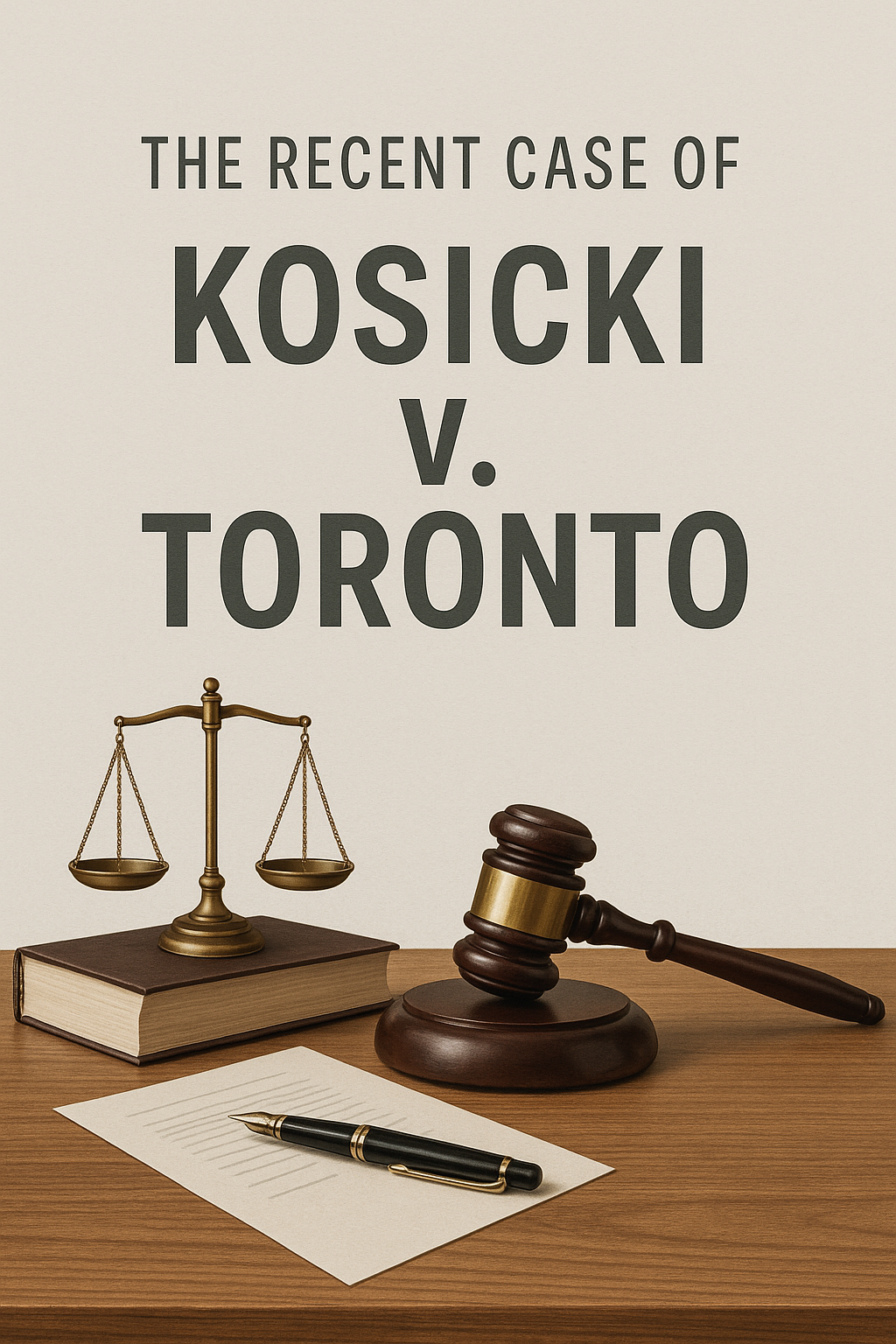A Backyard Surprise
Imagine this: you buy a house in Toronto, enjoy your backyard for years, and then find out part of the land behind your fence actually belongs to the City.
Sounds unbelievable, right? That’s exactly what happened to a Toronto couple, Pawel Kosicki and Megan Munro.
Their case, Kosicki v. Toronto (City), recently made it all the way to the Supreme Court of Canada—and the outcome might surprise you.
________________________________________
What Happened?
When Kosicki and Munro bought their home in 2017, they thought the fenced backyard was entirely theirs. But part of that land was officially City parkland.
Here’s the twist: the strip of land inside the fence had been used exclusively by homeowners since the 1970s. Families cut the grass, kept it private, and treated it like part of their own property for nearly 50 years.
When the new owners discovered the truth, they asked the City to sell them the land. The City said no. So they went to court, arguing that the land was theirs through something called adverse possession—sometimes known as “squatters’ rights.”
________________________________________
What Is Adverse Possession?
Adverse possession is an old property law rule that says:
• If someone openly uses and controls a piece of land as if it’s their own,
• For a long enough period of time (in Ontario, at least 10 years in most cases),
• Without the true owner stopping them,
… then they may legally become the new owner of that land.
It’s meant to settle old disputes and reward people who actually care for and use the land.
________________________________________
The Legal Fight
• The lower courts said: “Yes, you acted like the land was yours, but since it’s City parkland, you can’t claim ownership. Public land is for the people.”
• The Supreme Court of Canada disagreed. On September 19, 2025, it ruled that there’s no automatic rule protecting municipal parkland from adverse possession.
In other words, if you meet all the legal requirements, even City-owned land might become yours.
________________________________________
Why This Matters to You
1. Homeowners
o If your fence has been in the “wrong” spot for decades, you might still have a claim to that land.
o It’s a reminder to always check surveys and property lines when buying a home.
2. The City and the Public
o Municipalities now need to keep a closer eye on their land. If they don’t act, private owners could gain legal rights over it.
o Some people worry this could shrink Toronto’s already limited green space.
3. The Bigger Picture
o The court made it clear: only lawmakers can decide to fully protect parkland from claims like this. That means Ontario might change the rules in the future.
________________________________________
A Landmark Case
Kosicki v. Toronto shows that even land owned by the City isn’t untouchable if it’s been treated as private for decades.
For most of us, the takeaway is simple:
• Know your property boundaries.
• Get a proper survey when buying a home.
• And if you’re not sure about your land, talk to a lawyer before assuming that fence line is the law.
________________________________________
✅ Key Lesson: Fences might make good neighbours, but they don’t always make the right property lines.
Contact Capulli Law LLP for all of your real estate needs. Whether you are buying property in Toronto, or signing a lease in Vaughan – be sure to reach out to us before signing any document.
